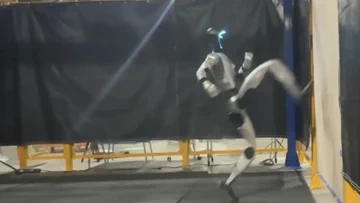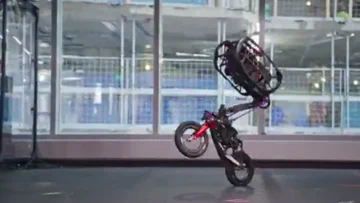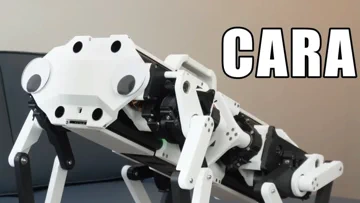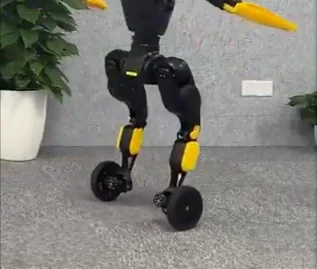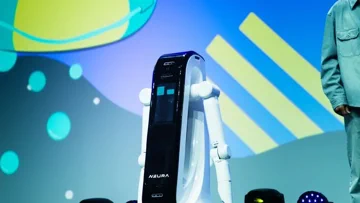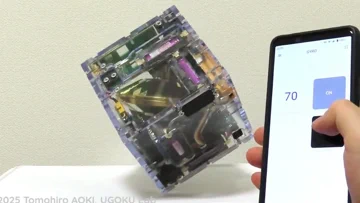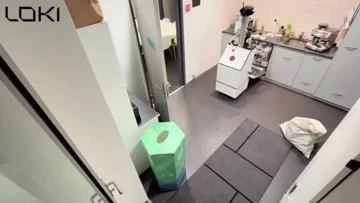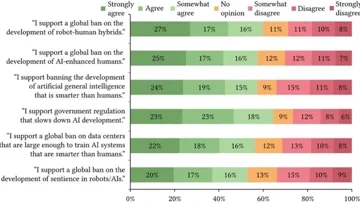Overview
In the global arena of humanoid robotics, where giants clash over bipedal locomotion and payload capacity, a mysterious new player from China has decided to focus on what’s arguably the most complex component: the head. Meet AheadForm, a Shanghai-based startup with the audacious goal of, quite literally, “Building A Head For AI”. Founded in 2024 by Dr. Yuhang Hu, a Columbia University PhD graduate, the company is pioneering the hardware and software necessary to give robots hyper-realistic faces capable of expressing nuanced emotions.
Instead of chasing warehouse logistics or factory-floor dexterity, AheadForm is betting that the key to bridging the gap between humans and machines lies in non-verbal communication. Their creations, like the stunning Elf Xuan-20, aren’t just robots; they are intricate electromechanical sculptures designed to interact, emote, and connect on a human level. The company integrates advanced AI, Large Language Models (LLMs), and high-degrees-of-freedom bionic actuation to empower future AGI with what it calls “authentic emotions and lifelike facial expressions.” This laser focus on the face and the brain behind it makes AheadForm a fascinating, if enigmatic, contender in the race to build our future robotic companions.

Key Points
- Founded: 2024 in Shanghai, China by Dr. Yuhang Hu.
- Mission: To create sophisticated humanoid robot heads that can express emotions and interact seamlessly with humans, effectively giving AI a relatable identity.
- Core Technology: A combination of self-supervised AI algorithms, bionic actuation with up to 30 degrees of freedom, and custom brushless micro-motors for precise, quiet facial movements.
- Key Products: The Elf Series of ultra-lifelike humanoid robots and the Origin M1, a head-only module for research and display.
- Flagship Showcase: The Elf Xuan-20, a full-body humanoid developed in collaboration with NetEase Games, is renowned for its shockingly realistic appearance and micro-expressions.
- Funding: Has raised at least $14M from investors including Ant Group and Highlight Capital.
- Vision: Aims to revolutionise industries like healthcare, education, and customer service where building trust and rapport is essential.
Analysis
History and Evolution
Emerging on the scene in just 2024, AheadForm is a newborn in the robotics world, yet it has made a disproportionately large splash. The company was founded by Dr. Yuhang Hu, whose PhD work at Columbia University included developing a robot named Emo that could predict and mirror human facial expressions in real-time. This academic foundation is evident in AheadForm’s polished, research-driven approach.
Rather than starting with a clumsy bipedal platform and promising a brain later, AheadForm began with the brain—and the face to express it. Their initial reveals, including the Elf V1 and the research-focused Origin M1 head, immediately set them apart. These weren’t just mannequins with motors; they were platforms integrating dozens of custom micro-motors with AI to produce subtle, lifelike twitches and expressions that dance on the edge of the uncanny valley.
Technology and Innovation
At the heart of AheadForm’s magic is a trifecta of technologies. First is the hardware: custom-designed, ultra-quiet brushless micro-motors that actuate the “facial muscles” under a soft, bionic skin. The Elf series boasts up to 30 degrees of freedom in the head alone, allowing for a vast range of expressions.
Second is the software. The company uses “self-supervised AI algorithms” and multimodal large models that process visual and auditory cues to generate appropriate facial responses. This allows their robots to not just mimic but seemingly react to human emotion. Cameras embedded in the pupils provide the visual input, while microphones handle audio, creating a closed loop of perception and expression.
The final piece is the artistry. As showcased in their collaboration with NetEase Games for the Meet Elf-Xuan 2.0: The Most Realistic Humanoid Yet , AheadForm isn’t just building a product; it’s crafting a character. This focus on aesthetic and emotional design, rather than pure utility, is a radical departure from the prevailing industrial mindset of robotics.
Market Position
AheadForm has cleverly carved out a unique niche. While companies like Tesla, Figure AI, and Boston Dynamics are focused on the “body” and its physical capabilities, AheadForm is singularly devoted to the “head.” This makes them less of a direct competitor and more of a potential specialised supplier—the “Intel Inside” for the face of future humanoids.
Their target markets reflect this focus: customer service, healthcare, education, and entertainment are all fields where emotional connection and non-verbal cues are paramount. By creating a relatable and trustworthy interface for AI, they could solve a major user-acceptance problem for the entire industry. However, their main challenge will be proving that a beautiful face is a must-have feature rather than a luxury add-on in a market still obsessed with cost and physical task completion.
Verdict
AheadForm is, without a doubt, one of the most intriguing robotics startups to emerge from China. They have astutely identified that the final frontier for robot acceptance isn’t lifting heavier boxes, but making eye contact that doesn’t send a shiver down your spine. Their work on the Elf series is both a stunning technical achievement and a masterclass in product marketing, generating viral buzz that billion-dollar competitors would kill for.
The company’s primary weakness is its opacity and the narrowness of its current focus. While building the world’s best robot head is a noble goal, the rest of the body can’t be an afterthought forever. It remains to be seen if they can translate their expertise in facial actuation into a fully functional, mobile humanoid or if they will pivot to becoming the premier supplier of expressive heads for other platforms. Their vision of empathetic robots in healthcare and education is compelling, but the path from a static art piece to a dynamic, useful assistant is long and fraught with peril.
Ultimately, AheadForm is giving robots a personality before they’ve even learned how to properly fold the laundry. It’s a bold, backward-seeming strategy that might just be genius. They are betting that in a future filled with metallic helpers, we won’t just want them to do things for us; we’ll want to feel like they get us. And for that, you need a good head on your shoulders.

